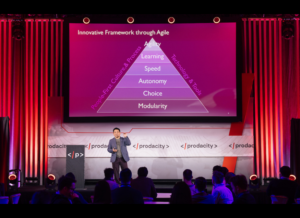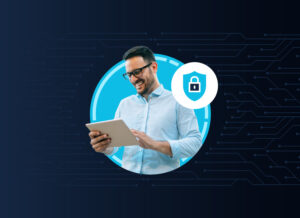A recent SolarWinds® survey looked at the changing roles and responsibilities of IT pros throughout the pandemic. Overall, the survey found nearly two-thirds of surveyed IT pros discovered a new sense of confidence, despite contending with challenges such as reduced budgets, greater decision-making responsibilities, and longer hours caused by their organizations’ response to the pandemic.
The survey also uncovered a vast upskilling. The implications of COVID-19 accelerated IT pros’ efforts to upskill in critical competencies such as systems management, network management, and security policies and compliance. In fact, more than a quarter (26%) of IT pros said it was necessary to learn new skills to support their organizations’ transitions to a remote workforce.
The top skills IT pros reported as the most important for development were as follows:
-
- Systems management (55%)
- Network management (50%)
- Security policies and compliance (43%)
- Hybrid IT monitoring/management tools and metrics (28%)
A Closer Look at Today’s SysAdmins
It’s an understatement to say the systems management role has changed dramatically during the past year. Why is this role so important? Historically, SysAdmins were responsible for keeping servers up and the network running smoothly. Throughout 2020, however, agencies moved from physical offices to working from home, generating more infrastructure load and a far greater reliance on virtual private networks and videoconference tools. More agencies moved to cloud environments and have embraced a digital transformation.
 The SysAdmins Role Is Changing… and Expanding
The SysAdmins Role Is Changing… and Expanding
This means SysAdmins—in addition to continuing to manage physical hosts—are now responsible for managing containers and virtual machines, enhancing load balancing, creating and managing automation scenarios, and embracing open-source tools. In fact, with the rise in DevOps, there’s a high likelihood SysAdmins must now have at least some understanding of software development.
The list goes on. SysAdmins are now increasingly responsible for data backup and disaster recovery, network monitoring and analysis, identity and access management, asset tracking and usage, and database administration.
SysAdmins are also seeing an increased focus on security. Just as DevOps has evolved into DevSecOps, SysAdmins play an even more critical role in keeping the agency’s environment safe from inside and outside threats, from securing hardware components to securing the network and the entire infrastructure.
This is only the beginning of the types of changes we should expect to see agencies adopting over the next several years. According to the survey, IT pros expect several trends to shape the future of their respective IT organizations:
- Greater cross-team collaboration (53%)
- More responsibility (46%)
- IT inclusion in more business-level meetings and decision-making (41%)
- Tighter budgets (even post-economic recovery) (26%)
- More opportunity to upskill/attend trainings (25%)
Nurturing the SysAdmin
The takeaway? Change is underway, and SysAdmins can’t bear the brunt of the load without support. In IT, wearing multiple hats is normal and oftentimes desired, as this community is interested in technology and seeks opportunities to learn about the new technologies on the horizon. But all stakeholders must be aware of the current workload, as challenges and errors can occur if individuals are overworked. So while upskilling is a must, government organizations have a role to play in ensuring the success of their SysAdmins.
The solution? Work smarter, not harder. Increasing headcount doesn’t always eliminate the burden for SysAdmins. Instead, use the software tools and technologies at your disposal to automate where possible and support your SysAdmins from within.
Support your SysAdmins so they can support you.
Visit our website for more information on SolarWinds and key features of systems management.







